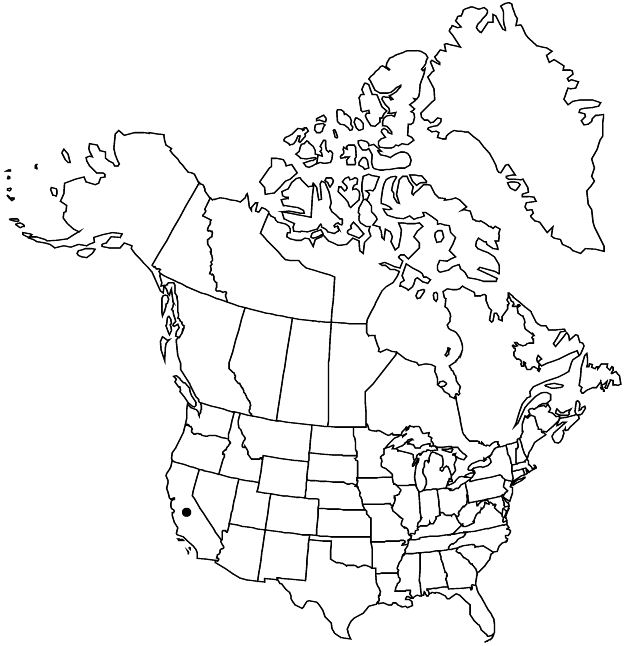Ceanothus oliganthus
Fl. N. Amer. 1: 266. 1838.
Shrubs, sometimes arborescent, evergreen, 2–3(–6) m. Stems erect, not rooting at nodes; branchlets reddish brown or brown, usually not, sometimes weakly, thorn-tipped, usually round, sometimes ± angled in cross section, flexible to rigid, glabrous, puberulent, or villosulous. Leaves: petiole 3–8 mm; blade flat, ovate to widely elliptic, 8–35 × 4–25 mm, base obtuse to subcordate, margins denticulate most of length, not revolute, teeth 19–71, apex obtuse, rounded, or acute, abaxial surface usually pale green, sometimes gray-green, sometimes glaucous, glabrate to hirtellous, adaxial surface dark green, villosulous, especially on the veins, or glabrate; 3-veined from base. Inflorescences axillary, racemelike, 1.5–5.2 cm. Flowers: sepals, petals, and nectary usually pale to deep blue or purplish blue, rarely white. Capsules 4–7 mm wide, lobed, ± depressed at apex; valves smooth or rugose, viscid, crested or not.
Distribution

California, nw Mexico.
Discussion
Varieties 3 (3 in the flora).
M. Van Rensselaer and H. McMinn (1942) treated var. oliganthus and var. sorediatus as species, although they and R. F. Hoover (1970) discussed intergradation between the two forms throughout part of their distribution, especially in the southern Coast Ranges and Transverse Ranges of California.
Selected References
None.
Lower Taxa
Key
| 1 | Ovaries and nectaries pilosulous; capsules glabrescent, valves rugose, weakly crested dorsally. | Ceanothus oliganthus var. orcuttii |
| 1 | Ovaries and nectaries glabrous; capsules glabrous, valves smooth, crested or not. | > 2 |
| 2 | Branchlets puberulent to villosulous; leaf blade adaxial surfaces usually villosulous, sometimes glabrate; capsule valves usually crested, sometimes not. | Ceanothus oliganthus var. oliganthus |
| 2 | Branchlets glabrous to sparsely puberulent; leaf blade adaxial surfaces sparsely villosulous to glabrate; capsule valves usually not, sometimes weakly, crested. | Ceanothus oliganthus var. sorediatus |